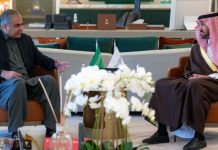ISLAMABAD: Pakistan should learn from China to develop its renewable energy sector to overcome power shortage in the country and reduce tariffs of electricity for the local consumers.
The shortage of power is one of the basic issues facing Pakistan as it plays a major role in increasing electricity tariffs and foreign exchange expenditures on imported energy. There is a dire need for more self-sufficient power generation in Pakistan. The country can learn from China’s progress in developing the renewable energy sector in light of the current global discourse on sustainable and low-carbon development.
China is leading the world in wind and solar power generation. According to the International Energy Agency (IEA), China contributes 36% to 40% to the world’s growth in solar and wind energy.
Dr Abdul Rauf, a telecom engineer and a faculty member of the National University of Science and Technology Islamabad, told WealthPK that renewable energy projects under China-Pakistan Economic Corridor would play a pivotal role in promoting low-carbon development in Pakistan. He said that CPEC was shaping up to be one of the biggest foreign investments in Pakistan in the coming years.
“Pakistan should explore and deploy renewable energy sources on an emergency basis. However, there are some hurdles to full-scale exploitation of these naturally available renewable resources such as high cost, lack of technology, socio-political behaviours and some policy conflicts,” he said.
Dr Abdul Rauf said that looking at China, Pakistan must have visionary leadership and political will, and introduce sustainable policy incentives focused on research and collaboration to acquire the latest technology and raise awareness among people as well as policymakers about the benefits of renewable energy. “We as a nation must actively pursue distributed and integrated renewable energy solutions that will bring great benefits to the country,” he added.
“Pakistan has a good opportunity to get expertise and know-how from its cooperation with China in the field of renewable energy,” he added.
Dr Abdul Rauf said that direct training programmes should be launched with China’s help. “Win-win scenarios are possible when low-cost local labour is imparted the training needed to work on Chinese-managed projects in Pakistan. It is also important to encourage local manufacturing of renewable energy equipment and products by addressing market inefficiencies and providing incentives to regional producers,” he added.
He said that learning from the Chinese experience and incentivising local production of renewable energy were prerequisites for attaining growth in the sector. He said that incentives should be given to the private sector for the local production of solar and wind turbines. It will promote local production and ensure the development of the sector.
Minister of State for Petroleum Musadik Masood Malik said that power plants in Pakistan were heavily dependent on imported fuel, which was notoriously costly for the treasury. “That’s why we have been thinking for a long time to focus on the assets that are being produced in our country,” he added.
Recently the government has planned to launch solar power projects of around 14,000 megawatts as an alternative to the costly electricity generated using imported fuel. Under the initiative, the government also plans to reduce prices of solar systems for general public by providing tax incentives.
As of March 2022, the number of installers of the solar system certified by the Alternative Energy Development Board grew by around 56%. Net metering-based solar installations and power generation grew by 102% and 108%, respectively, according to the research conducted by WealthPK.





